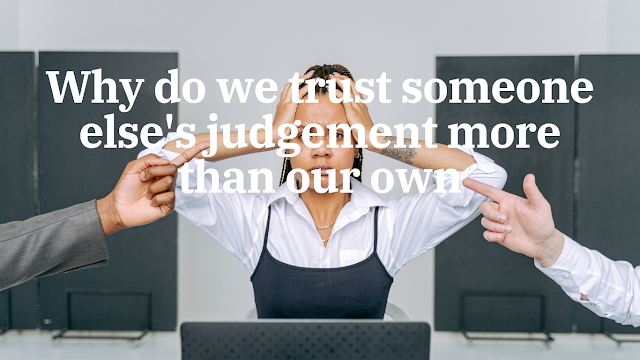L'enfer - c'est les autres Or The Problem with the Critics
It's actually fairly simple. We could reduce the entire issue to one efficient, concise sententce: We don't like being criticised. Carrie Bradshaw (Sex and the City, Season 5, Critical Condition) nailed it in the head, why are we more likely to believe the bad reviews got it right? Why don't we listen to our friends and family, the next door neighbour or the nice lady at the dry cleaners, maybe even the strager on the bus?
We all have our favourites like Beethoven's Synphony No. 9 conducted by Herbet von Karajan in 1977.
My own understanding of perfection - or almost perfection, a version of something ingrained in our brains we secretly use as yardsticks to judge the rest of the world accordingly: compare and contrast. Intellectually of course you know that other interpretations by not so dead conducters may be equally excellent, on an emotional level, there is no such reasoning.
Let's face it, nobody likes to be made aware of their mistakes, imperfections, flaws, faults and failures. Anyway, I am usually the first to know when I messed up and errors, no matter how small, have the horrible tendency to manifest as flaming red badges of shame. So do I really need the confirmation of a third party to put another objectively subjective value judgement on top of my own? It is easier to believe "you look like death warmed over" than "you look absolutely marvellous today", even though you are not suffering from an inferiortiy complex as big as China. The latter seems just like an utterly trite phrase for polite conversation, whereas the former almost seems to (sledge-) hammer home the message: good God, you should take better care of yourself. And of course there is always the question why? Is your critic just of a sunny disposition likes to share his opinion with the rest of the world. Even if he pays you a compliment, is it genuine? What does he want in return? What nefarious reasons could he possibly have to bring this or that up, again? And lastly what does that say about our society?
In a post-modern, globalised, networking and tweeting world other people's opinions seem to matter more than our own such is the myth of the achievement oriented society, if you work hard enough, you'll get your dues. On the downside, it makes you dependent. While we absolutely despise negative criticism, we crave validation. It's a paradox in itself. It's the pressures of our achievement oriented society, where kindergarterners learn Chinese and have violine lessons before they have even the slightest inkling about their own identity, not only as a person, but also as member of a larger community. Jean-Paul Sartre made it quite clear, we need the other. Granted in most cases we would prefer it, if that other could simply tell us our choices in life means something, our life is worth more than the sum of the years we managed to get by.
There is no doubt, all identity needs negotiation, no man is an island but any judgement call needs a basis to stand on, a standard against which you are mesured. However standarisation goes hand in hand with uniformity at the cost of individuality. Do you believe the critic or would you rather go read the book, watch the movie or the play yourself? Roughly 300 years ago Immanuel Kant charged us with self-liberation: Sapere Aude he wrote, know your own mind, engage with that increasingly complicated and confusing world out there.
In fact, it's probably one the most fundamental issues in the 21st century. Where does the freedom of one man end? If you are constantly required to prove yourself, mold yourself into a socially accepted version of yourself, your ego gets beaten to a pulp and identy becomes just another fancy term for something everybody wants but nobody gets. What does a 21st century kid need to become to be him(her)self?


.png)
Kommentare